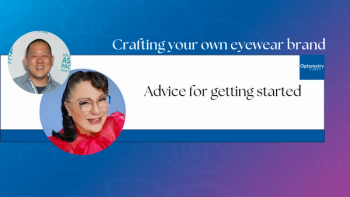
- Vol. 11 No. 5
- Volume 11
- Issue 5
How private equity affects optometry
If ODs had a time machine and could go back in time to the day they graduated from optometry school (or the day they decided to join or open a practice), would they choose to be employed, own their own practice, or a combination of the two throughout their careers?
Priorities change with time. For those who own practices, many likely wish they could work 9-5 and forget about the headaches of practice ownership. From insurance audits to human resources, that’s not why they went to optometry school.
Past practice sales
Historically, if an OD wanted a sell a practice he owned, he would need to keep in mind that new graduates would be unlikely to afford to buy a large practice.
Plus, selling to a new grad traditionally meant that the selling doctor would mentor and provide support to the new, younger owner, such as how to manage a practice or even financing the sale himself.
The average student debt in 2001-2002 was $99,208. Compare that to the average student debt in 2016-2017 of $174,165.1 The increase of student debt is a concern to all in optometry.
Related:
Exit strategy
Private equity now offers an exit strategy to all practices regardless of size. Private equity by definition has money and can immediately eliminate the headache of ownership.
Depending on which private equity firm you sell to, you may be able to customize how much or how little you want to work after the sale of your practice. Furthermore, with the increase in the number of private equity companies purchasing practices, competition has resulted in many markets. Competition is good for the seller as it often leads to a higher sale prices.
If I were to put myself in the shoes of an optometrist looking to cut back or retire, it would be hard not to sell to private equity.
Focus on patient care
So, how does private equity lessen the headache of practice ownership?
Private equity firms offer some or all of the following:2
• Financial management
• Marketing
• Human resources
• Accounting
• Managed care credentialing
• Claims processing services
In turn, the doctor can solely focus on taking care of patients.
Related:
Follow the money
However, private equity firms are not doing this for free; they keep the profits. In addition to profits from materials and/or services, many private equity firms are looking for a big payout when they sell the chain of practices to the next larger private equity firm.
For example,
In 2015,
Atlas Partners has invested approximately $6 billion in many companies.4 CDPQ has invested $309.5 billion in many companies.5
In other words, a smaller private equity company purchased MyEyeDr then sold it three years later to two larger private equity companies.
Another example is FFL, a private equity firm that has invested over $2.5 billion in over 50 companies.6 FFL acquired
Buying a practice
ODs who are currently employed and eventually want to buy an existing private practice may not be getting the “deal” they may have in the past because purchase prices have most likely increased. However, there is value in purchasing an existing practice, if it’s the right practice for that OD.
The easiest way to acquire patients is to purchase an existing practice. Also, with the rise of alliance groups such as but not limited to
If an OD decides to purchase a private practice or start a private practice cold, he must remember he is now competing with sophisticated big business.
Related:
In the book
• What lights your fire?
• What could you be best in the world at?
• What makes you money?
In my opinion, if an OD can find a niche that falls into these three circles, she will be able to compete with private equity.
Although there are more headaches and management/human resource responsibilities with owning a private practice, ODs receives a financial reward because they keep the profits.
OD income
By comparing 2013 to 2018 numbers (see "Average OD income 2018 vs. 2013"), the greatest increase in salary is for ODs practicing 0 to 10 years.9,10
Although ODs now have larger salaries for the first 10 years in practice, they see less growth from years 10 through 20. Larger starting salaries are a carrot for new ODs to become employed because they statistically have larger debt than ever before.
In my opinion, the most shocking statistic is that doctors practicing longer than 30 years were making 2.63 percent less in 2018 than in 2013. I think this is due to the increase in private equity purchases of established practices.
Often after 30 years of practice, if not sooner, ODs may value fewer ownership headaches. In exchange for reducing management stress, he may be willing to make less money.
Note that the OD who had been practicing for many years who sells out to private equity may take a decrease in salary after the sale of her practice, but she received a large payout when the sale closed.
Related:
Practice availability
Private equity groups often target established practices. If we assume OD salaries are a reflection of practice profit (which is not always accurate), there is a direct correlation with number of years in practice and practice profit. In turn, private equity looks for proven practices to purchase.
ODs thinking about starting a practice cold should consider that in the first years they will most likely make less money than their employed colleagues. Down the road, they will statistically make more money than employed colleagues, but practice owners will always have management responsibilities in addition to patient care.
As private equity companies buy more private practices, fewer practices are available for individual ODs to purchase. Additionally, many millennials are less interested in purchasing private practices. Commonly, millennials have a “work to live” mentality and value their free time more than baby boomers.11
Conversely, ODs who have practiced more than 30 years are most likely baby boomers. Baby boomers were directly influenced by their parents who lived through the Great Depression. Generally speaking, those who lived through that time had a “live to work” mentality.11
Related:
In 2009, 75 percent of optometrist primarily worked in a private practice.12 In 2015, 58 percent of optometrist primarily worked in a private practice.13
Private equity has had an effect on shrinking private practice numbers.
In 2013, MyEyeDr./
In 2017, MyEyeDr./Capital Vision Services ranked number 7 of top retailers with $490.8 million in U.S. sales, which is a 371.92 percent increase in four years. Eyemart Express ranked number 10 with $245 million, which is an 11.36 percent increase in four years.15
Private equity-owned practices are increasing, and this shift is not unique to optometry. All of health care, including ophthalmology and dentistry, is being approached by private equity.
In the past, health care allowed doctors to reap financial benefits by not only caring for patients but also owning businesses. In the future, will doctors still have the opportunity to own their own businesses, or will they strictly be caring for patients? Only time will tell how private equity will change health care-including optometry-as a whole.
About the author
Dr. Moscow focuses on fitting specialty contact lenses and treating eye disease with a certification to perform subcutaneous and subconjunctival injections. In addition to lecturing, he consults on vision therapy and primary-care billing and coding. In his spare time, Dr. Moscow volunteers as a helicopter pilot with Angel Flight, which transports patients who are financially distressed or who are in time-critical situations due to their medical conditions. He serves as a consultant for Bausch + Lomb.
scott@roswelleyeclinic.com
References:
1. Association of Schools and Colleges of Optometry (ASCO). Average Educational Indebtedness of Graduates with Debt: U.S. Schools and Colleges of Optometry Including Puerto Rico 2001-2017. 2018 May. Available at: https://optometriceducation.org/wp-content/uploads/2018/05/Average-Indebtedness-Graduates-1.pdf. Accessed 4/29/19.
2. Staff. Investment Groups Altas and CDPQ Invest With Management to Acquire MyEyeDr./Capital Vision Services. Vision Monday. 17 Aug 2015. Available at: http://www.visionmonday.com/latest-news/article/investment-groups-altas-and-cdpq-invest-with-management-to-acquire-myeyedrcapital-vision-services-1/. Accessed 4/29/15.
3. Monitor Clippers Partners. Available at: https://www.monitorclipper.com. Accessed 4/29/19.
4. Atlas Partners. Our Focus. Available at: https://altas.com/#About/more. Accessed 4/29/19.
5. CDPQ. Available at: https://www.cdpq.com/en/investments/overall-portfolio. Accessed 4/29/19.
6. FFL Partners. Available at: http://www.fflpartners.com/team/investment-team/15-portfolio/investments. Accessed 4/29/19.
7. Staff. Clarkson Eyecare Acquires EyeCare Associates and Pinnacle Optical. Vision Monday. 1 July 2015. Available at: http://www.visionmonday.com/latest-news/article/clarkson-eyecare-acquires-eyecare-associates-and-pinnacle-optical-1/. Accessed 4/29/19.
8. Collins JCC. Good to Great: Why Some Companies Make the Leap….and Others Don’t. New York: HarperBusiness, 2001. Print.
9. Murphy J. Income Survey: A Turn for the Better. Rev Optometry. 15 Nov 2014. Available at: https://www.reviewofoptometry.com/article/income-survey-a-turn-for-the-better. Accessed 4/29/19.
10. Manthorp C. 2018 Income Survey: Where Do You Stand? Rev Optometry. 15 Dec 2018. Available at: https://www.reviewofoptometry.com/article/2018-income-survey-where-do-you-stand. Accessed 4/29/19.
11. Twenge JM, Campbell SM, Hoffman BJ, Lance CE. Generational differences in work values: leisure and extrinsic values increasing, social and intrinsic values decreasing. J Management. 2010;36(5):117711-42.
12. American Optometric Assocation. Income from Optometry: 2010 Census of Optometric Practice. American Optometric Association Research & Information Center: Executive Summary. 2011 June. Available at: https://www.aoa.org/Documents/optometrists/Income_from_Optometry-2012_Executive_Summary.pdf. Accessed 4/29/19.
13. American Optometric Association. 2017 AOA Survey of Optometric Practice. American Optometric Association Research and Information Center. 2018. Available at: https://www.aoa.org/Documents/2017%20Employment%20of%20Optometric%20Staff%20-%20exe%20sum.pdf. Accessed 4/29/19.
14. Sailer J. Reaching New Heights. Vision Monday. 18 May 2015. Available at: http://www.visionmonday.com/CMSDocuments/2015/5/cover_story_VM051815.pdf. Accessed 4/29/19.
15. Axelrad M. A Fresh Picture Takes Shape. Vision Monday. 2018 May. Available at: http://www.visionmonday.com/CMSDocuments/2018/05/coverstory_VM0518.pdf. Accessed 4/29/19.
Articles in this issue
over 6 years ago
Travoprost eluting drug-delivery device shows promiseover 6 years ago
Know what practice metrics to measureover 6 years ago
How to control myopia progression in your practiceover 6 years ago
How to determine an ideal LASIK candidateover 6 years ago
How to build your practice through social mediaover 6 years ago
Consider the whole patient when treating glaucomaover 6 years ago
Role of insulin therapy in diabetes and diabetic retinopathyover 6 years ago
Assessing visual crowding and its impact on glaucoma patientsover 6 years ago
I introduce myself to patients as Benover 6 years ago
Revamp your patient handoffNewsletter
Want more insights like this? Subscribe to Optometry Times and get clinical pearls and practice tips delivered straight to your inbox.













































